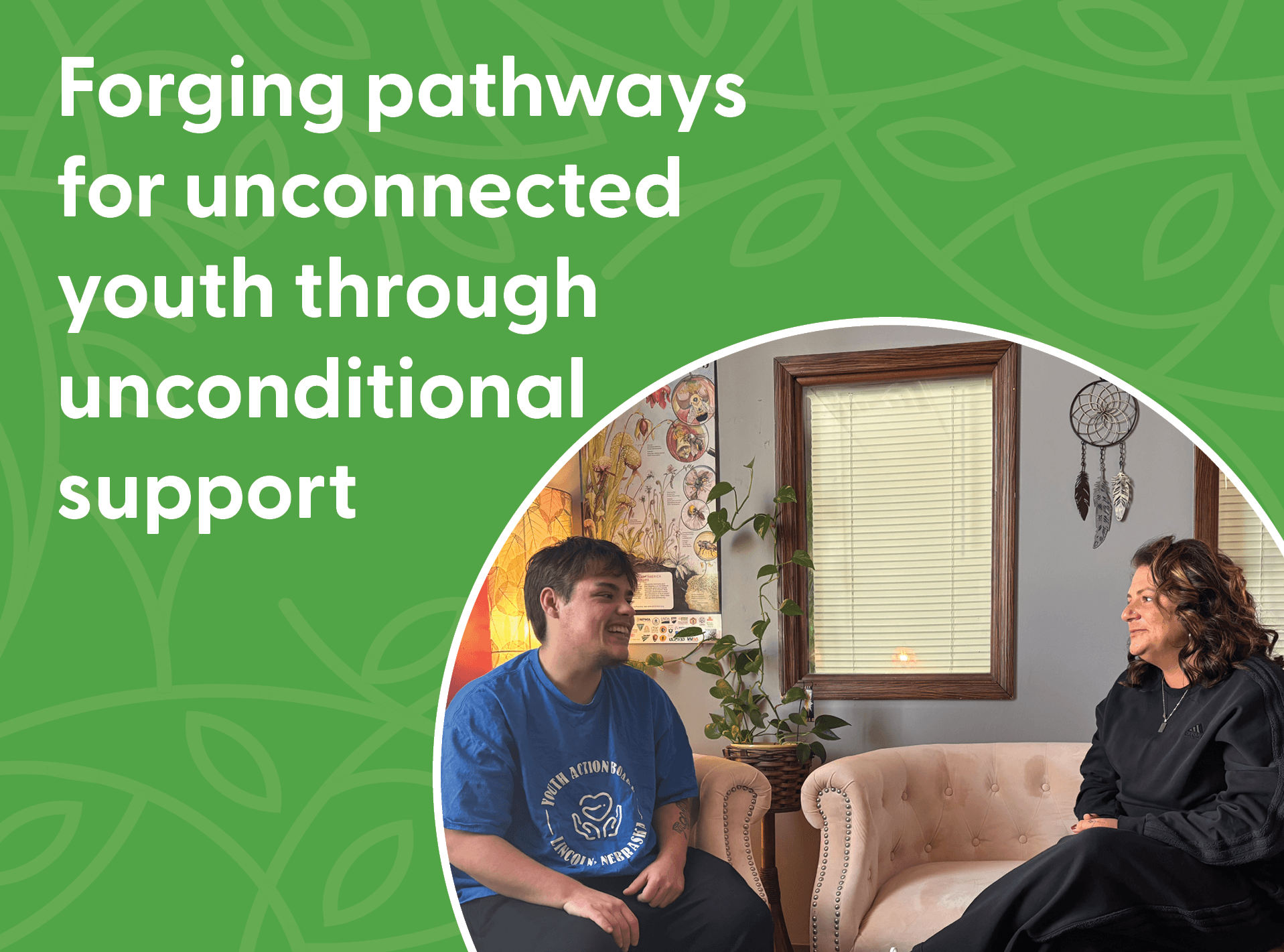
“The reality is – the bumps of life are going to happen.”
Rose Hood-Buss, executive director of The HUB Central Access Point for Young Adults, has spent her career supporting Lincoln’s youth in whatever life situation they may find themselves.
“If we can come alongside them and help in what seems like small ways – a car repair, a utility bill, a bus pass – that keeps them on the path of independence and on the path of their success,” she shared.
For The HUB, success often looks like someone taking the first step to walk through their doors at 1037 South 12th Street.
These are young people navigating life without permanent family support, including those who are pregnant or parenting, experiencing homelessness or housing instability, involved in foster care or juvenile probation, survivors of trafficking or exploitation, or otherwise estranged from their families. Many have experienced Adverse Childhood Experiences (ACEs) and carry risk factors that increase their vulnerability to multi-generational system involvement.
“Asking for help is hard, especially for young adults that are system impacted,” said Rose. “They haven’t had an opportunity to advocate for themselves.”
At The HUB, they’re welcomed by a passionate team that’s able to walk with them as they achieve their goals.
“We focus on education, employment and empowerment, and everything is voluntary – it’s all up to them,” said Rose. “The core of our work is unconditional support on the path that they choose.”
Rose’s involvement with The HUB dates to its inception in 2003.
“I was working at Lighthouse when the concept of something specific to support this population came about,” she said.
Representatives from 25 organizations formed the Transitional Service Network, which identified a gap in services for youth in transition. As a member of the committee, Rose helped write the first grant applications to fund the organization. By 2007, The HUB received its 501(c)(3) status and became an independent agency.
In 2017, Rose returned to the organization as Executive Director, acknowledging that the longevity of the staff speaks to their unique culture.
“What we have here is a team of driven individuals who believe in the mission,” she shared.
Of The HUB’s staff of seven, 75% have lived experience.
“They would have walked through our door for one reason or another,” said Rose. “That just adds to their passion. They are committed to ensuring that these young adults have someone in their corner.”
Through wrap-around programming, The HUB connects young people to housing resources, job readiness training, educational planning and supportive mentoring relationships. Last year, they provided 2,417 instances of support to 1,086 young people aged 14-24 in Lincoln and Lancaster County.
State and local data underscore the need for this type of support. In Nebraska, only 77% of youth with foster care involvement complete high school or earn a GED by age 21, and just 65% are employed by that age. Nearly 40% of youth formerly in foster care have experienced homelessness after aging out.
“For young parents, barriers are even greater,” shared Rose. “With consistent encouragement and connection, we can work to prevent multigenerational cycles of poverty and system involvement. This is how we really influence change.”
According to the Annie E. Casey Foundation, supporting youth through these critical transitions could save the nation $4.1 billion in costs related to homelessness, unemployment and public assistance.
While The HUB is primarily funded through grants and contracts, the support they receive can often be restricted, leaving a gap for operational expenses like rent, utilities and salaries. To help fill this gap, the organization was recently awarded an Open Door Grant from Lincoln Community Foundation for flexible, operational support.
“We’re proud to invest in The HUB through our Open Door Grant program,” said Michelle Paulk, Vice President for Grantmaking and Operations. “Helping youth in transition build stability toward independence and success is critical for our community to truly thrive.”
“This flexible funding allows us to meet urgent needs if there are items that are not covered under other grants,” said Rose.
As changes continue to roll out at the federal level – including Supplemental Nutrition Assistance Program (SNAP) eligibility requirements – Rose anticipates those needs will increase.
“The ripple effects that we feel are huge,” she said. “Who do young adults look to during times of uncertainty? Their go-to support system. We’re there as unconditional support – to sit, to listen and to ask: ‘How can we help?’”
Despite the evolving realities for young people, Rose and the team at The HUB continue to see hope rising.
“Through our Peer Support program, we have been using Hope Scores from author Casey Gwinn’s book Hope Rising,” shared Rose. “The young adults in Peer Support have been assessing their Hope Score every month. One individual went from a score in the low 20s to the high 60s. It’s about their ability to see hope from themselves.”
“If individuals can find willpower, way power and agency, that path forward looks different,” she continued. “Ultimately, our effectiveness is measured by the stories of resilience and transformation we witness every day: a young adult securing stable housing, completing their GED or gaining meaningful employment.”
While young people find their path to prosperity, The HUB remains a safe, inclusive space where individuals facing barriers can access critical resources, build stability and pursue personal growth.
“No one organization can do this alone,” said Rose. “It takes all of us working together. The interconnectedness of the nonprofit sector, the funders and individual donors is how we move the needle for our community.”
To learn more about LCF’s Open Door Grant program, visit LCF.org/helping-nonprofits.

